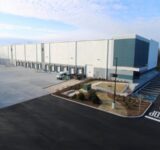By Joshua Burd
The Department of Environmental Protection is taking a page out of the TurboTax playbook — at least when it comes to permitting for land use and other regulatory needs.

Catherine McCabe, the commissioner of the state agency, said recently that the DEP was preparing to roll out a new electronic submission system more for than 100 land use permit activities, in its ongoing effort to streamline New Jersey’s regulatory structure. The new system will resemble the online tax software program, she said, in that it will generate questions based on the types of permits that are being sought and provide applicants with other guidance, such as fee and payment details and contact information for other government officials.
“We’re trying to make it friendlier, trying to make it faster, trying to be smart about how we plan,” said McCabe, who took over the agency this year as part of Gov. Phil Murphy’s administration. “We recognize that’s what we need to do.”
The former top federal environmental official shared the news earlier this summer during a presentation to NAIOP New Jersey. As part of a regulatory update, in which she pledged the DEP’s continued cooperation with the commercial real estate sector, McCabe touched on everything from electric vehicles and renewable energy to brownfield cleanup and the future of the state’s popular Licensed Site Remediation Professional program.
The new electronic system for the DEP’s permit coordination division could be a welcome change for developers and industry professionals. In mid-July, a spokesman for the department said the new system would be operational in the near future.
Led by Ruth Foster, the Office of Permit Coordination and Environmental Review coordinates all federal and state reviews for the DEP’s Review Unit, while coordinating and facilitating the permitting of large complex projects across multiple department programs. McCabe said during the July NAIOP meeting that the new system would cover 117 different permit activities, providing guidance through what can be a complex regulatory process.
For instance, she said the system can help an applicant determine if they need to generate a storm water report, a traffic study or an approval from a sewer utility. The system will also generate contact information for others that an applicant may need to reach, such as a municipal clerk.
During NAIOP’s summer Regulatory, Legislative & Legal Update seminar, McCabe said it was just one piece of the DEP’s effort to simplify layers of bureaucracy in the state.
“I understand one thing that the last administration did really well is rev that up so that we become more responsive and quicker in getting people through the permitting process,” she said. “Regardless of what the answer is, in the end I understand that what you want is an answer — and you need it soon, in order to make projects work.
“So we’re committed to continuing that.”










